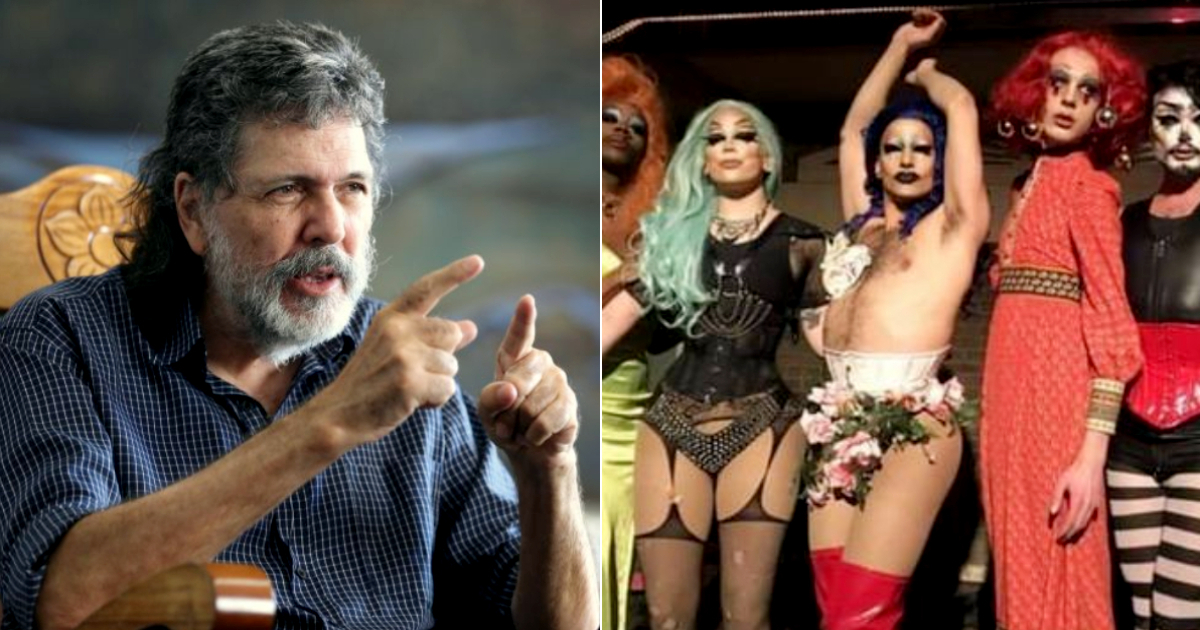
After the controversy sparked on social media by the publication of a homophobic and transphobic tweet by the former Cuban Minister of Culture, Abel Prieto Jiménez, he acknowledged the error of his message but maintained a dismissive tone towards the demands of the LGTBIQ+ movement.
The current president of Casa de las Américas and a notorious repressor of the Ministry of Culture (MINCULT) posted a message on his social media in which he stated that "the system promotes a false diversity to hide the authentic," accompanying his words with an image of members of the trans community, juxtaposed with another of Indigenous people.
Despite having deleted the post from his account on the social network X, Prieto Jiménez did not realize the offensive nature of his words, which were not well received by activists and people close to the LGBTIQ+ community, who took screenshots and shared them on other social networks.
In light of the uproar caused by his discriminatory message, the official intellectual published another message acknowledging the inappropriateness of his words, but using other equally insensitive phrases as an apology towards the demands of the LGTBIQ+ community.
"I posted an image on social media that I associated with the confrontation between trends and the banal stereotypes imposed by the capitalist market and the threat faced today by authentic cultures of the South. It was a mistake because it hurt the feelings of some friends and fueled the hatred of the usual enemies," the regime official muttered under his breath.
Despite acknowledging that "it was a mistake," the former friend and personal advisor to Fidel and Raúl Castro maintained his comparison of the equality demands of the LGTBIQ+ community to "trends and trivial stereotypes imposed by the capitalist market," in contrast to "the threat faced today by the authentic cultures of the South."
"Those who see racism, xenophobia, misogyny, machismo, sexism, homophobia, and transphobia as the most ferocious evidence of the cultural colonization against which we must fight tirelessly are right. 'Your struggle is my struggle,'" concluded the president of Casa de las Américas, unwittingly recognizing his uncritical reproduction of patterns that arose precisely from the "cultural colonization" he was trying to denounce.
The regime official's "apologies" were also the subject of mockery and criticism from social media users.
"I don't know what is worse, the original (deleted because, as is customary, they only realize these barbarities if there is a reaction, never on their own), or the explanation that followed, where they talk about sexual identities as a trend and take the opportunity to sing the enemy's tune," noted the academic Hilda Landrove on her social media.
The one who was also president of the Union of Writers and Artists of Cuba (UNEAC) has a history of missteps on his social media. At the end of July 2021, just days after the historic protests of July 11th in Cuba, Prieto Jiménez targeted the singer Yotuel Romero, one of the authors and performers of the urban anthem Patria y Vida.
Accusing him of having marched in Madrid "together with former slave owners" for leading an impressive demonstration of Cubans in the Spanish capital to demand freedom for their homeland, the president of Casa de las Américas received a strong response from the rapper.
"You have the need once again to see me as a Black person and to attribute to me any comment that brings me closer to slavery, in order to once again show the institutional racism that exists in you and in all those around you," said the former member of Orishas.
In a strong text published on his Instagram account, Yotuel reminded Prieto Jiménez that he had marched in Spain with 10,000 other Cubans who were demanding freedom. Finally, he accused Abel Prieto of displaying the institutional racism that persists among the leaders of the Cuban state apparatus.
"What did happen and is happening is that six Black men named Alexander, Randy, Maykel Osorbo, Descemer Bueno, and El Funky created a song that generated something in our people. However, you, as Minister of Culture, have not done anything relevant that the people can remember fondly. You will go down in history as an oppressor who never fought for art to be free," he concluded.
What do you think?
COMMENTFiled under: